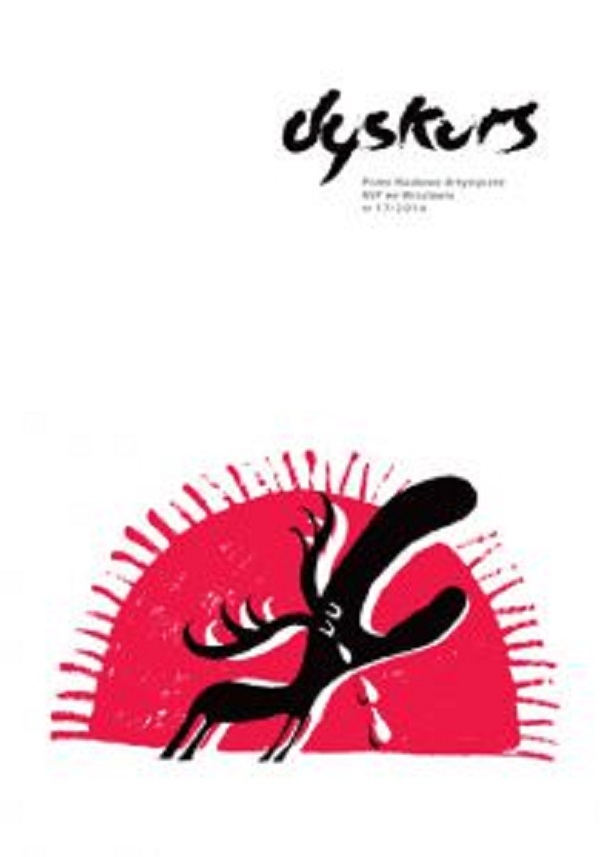Kamp według Susan Sontag
Abstrakt
Camp by Susan Sontag
What is the camp? Is it aesthetics, a lifestyle and maybe the way of looking at the world around us? Susan Sontag gave some answers to those questions in her essay entitled Notes on Camp published in 1964 in ‘Partisan Review’, an American quarterly. Kitsch and camp are primarily a mass expression of beauty, revealed even in ugliness.
Aesthetics of kitsch and camp are difficult to clearly define—it is primarily the expression and product of contemporary culture. Contemporary popular culture as ‘parent power’ from: K. Brzęk, Kamp jako strategia dystansu wobec kultury popularnej, http://www.kocur.uni.wroc.pl/index.php?option=com_contenttask=viewid=311Itemid=125, [01.06.2013] values simplicity, wants to be understood and loved by a wide audience, carries a simple and clear message. Kitsch in this context is seen as an expression of popular taste, which likes beauty and schematics, fears alienation and incomprehension. Kitsch is different from camp because it is not connected with cultural elite, it is a basic expression of happiness connected with kitsch-object, and kitschy art. Kitsch is massive recipe for happiness.
When we compare kitsch and camp, we can say that the aesthetics of kitsch can be used as an element of camp, but not vice versa. Camp adds beauty to jerry kitsch, therefore kitsch receives new, refined face, turned toward specific audience and formed with that audience in mind.
Neither kitsch nor camp does not directly attack high art—it only provides comments to it. Contemporary ‘user’ of culture may with clear conscience live among the products of high culture, kitsch and camp because he/she keeps a distance from kitsch and camp while enjoying the products and/or starting a dialogue with them. What’s more, we need time in order to properly evaluate and understand kitsch and camp in order to keep the right distance from them. The two kinds of aesthetics, especially kitsch, are now integral parts of contemporary art. As Sontag wrote: Life is too important a matter to talk about it seriously. Camp art teaches us how to find the distance from the reality and how to accept the world around us. I believe that kitsch teaches us ‘how to speak’ and camp teaches us ‘what to say’ from: S. Sontag, Notatki o kampie, [w:] ‘Literatura na Świecie’, 1979, no 9, p. 318.

